Thinking about replacing your 20-year-old windows but not sure if it’s worth the investment? We understand your dilemma. In this article, we will discuss the key factors to consider when deciding whether to replace your aging windows or stick with them a little longer. From energy efficiency to aesthetics, we’ll explore the pros and cons of replacing your 20-year-old windows, helping you make an informed decision that suits your needs and budget. So, let’s jump in and find out: Should you replace your 20-year-old windows?
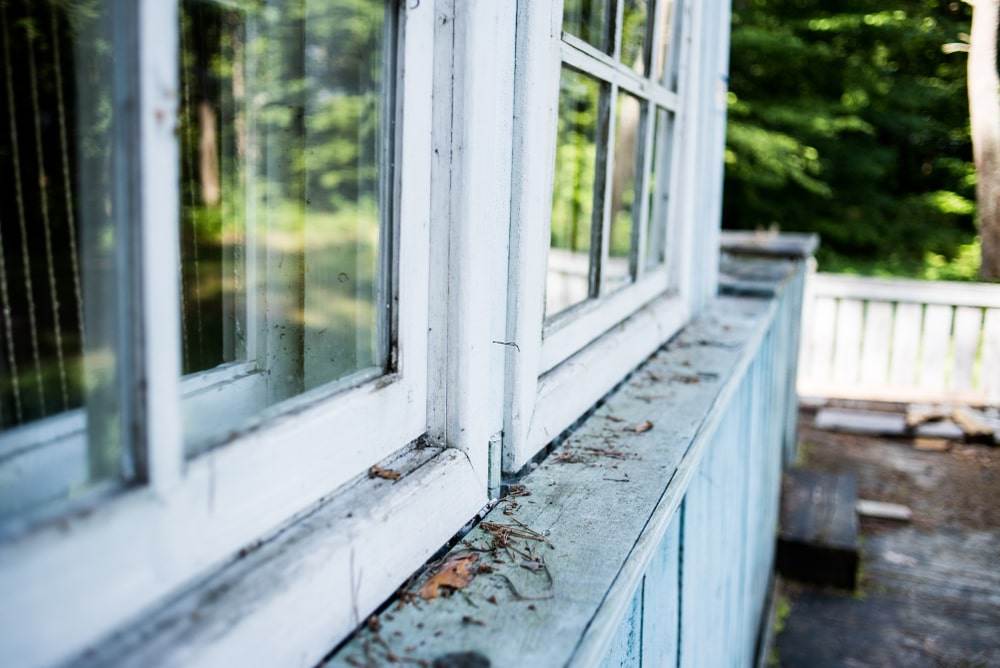
This image is property of www.mrroofcompany.com.
Cost Considerations
Initial Cost
When considering whether to replace your 20-year-old windows, one of the first factors to think about is the initial cost. Window replacement can be a significant investment, but it’s important to weigh this expense against the potential benefits. While the upfront cost may seem high, it’s essential to consider the long-term savings and improvements to your home’s value that new windows can provide.
Energy Savings
Old windows can be a major source of energy loss in your home. Poor insulation, air leaks, and single-pane glass can all contribute to higher energy bills. By replacing your 20-year-old windows with more energy-efficient options, you can expect to see significant energy savings. Newer windows are designed with features such as double or triple-pane glass, low-emissivity coatings, and improved framing materials to minimize heat transfer and air leakage, resulting in reduced energy consumption and lower utility costs.
Long-Term Savings
While the upfront cost of window replacement may give you pause, it’s important to consider the long-term savings that new windows can provide. With improved energy efficiency, you can expect to see a noticeable decrease in your heating and cooling expenses. In addition, some energy-efficient windows may qualify for tax credits or other financial incentives, further reducing the overall cost of replacement. When evaluating whether to replace your 20-year-old windows, it’s essential to consider the potential long-term savings and weigh them against the initial investment.
Window Condition and Maintenance
Signs of Deterioration
After 20 years, it’s likely that your windows will exhibit signs of wear and deterioration. Common indicators of window deterioration include cracked or broken glass, rotted or warped frames, and difficulty opening or closing. If you notice any of these issues with your windows, it’s a clear sign that replacement is necessary. Ignoring deteriorating windows can lead to further damage to your home and potentially compromise its structural integrity.
Repairability
In some cases, older windows may be repairable rather than requiring full replacement. However, it’s important to evaluate whether repairing your 20-year-old windows is a cost-effective option. Keep in mind that repairs may only provide a temporary fix and not address underlying issues such as energy efficiency or insulation. Consultation with window replacement experts can help determine whether repairs or replacement is the best course of action for your specific situation.
Maintenance Effort
Another consideration when contemplating window replacement is the ongoing maintenance required for older windows. 20-year-old windows may require regular painting, sealing, or other maintenance tasks to keep them in good condition. Newer windows, on the other hand, often come with low-maintenance features such as durable finishes and easy-to-clean surfaces. By opting for replacement windows, you can potentially reduce the amount of time and effort spent on window maintenance, freeing you up to focus on other tasks around your home.
Energy Efficiency
Improvements in Technology
Over the past 20 years, there have been significant advancements in window technology. Newer windows are designed with energy efficiency in mind, incorporating features that help reduce heat transfer and increase insulation. From double or triple-pane glass to low-emissivity coatings and improved framing materials, these technological advancements can significantly improve the energy efficiency of your home’s windows. By Replacing your 20-year-old windows with newer, more energy-efficient models, you can take advantage of these technological improvements and enjoy the benefits of reduced energy consumption.
Reduced Energy Consumption
One of the primary reasons homeowners opt for window replacement is the potential for reduced energy consumption. Older windows are often single-pane units that provide minimal insulation and allow heat to escape easily. By upgrading to newer, energy-efficient windows, you can significantly reduce the amount of energy needed to heat or cool your home. This translates to lower utility bills and a reduced environmental impact, as less energy is required to maintain a comfortable indoor temperature.
Potential for Tax Credits
In addition to the energy savings provided by new windows, there may also be potential financial incentives available. Some energy-efficient windows may qualify for tax credits or rebates, further offsetting the cost of replacement. It’s worth exploring these options and consulting with a tax professional or financial advisor to understand the potential financial benefits available in your area. When contemplating window replacement, be sure to consider the potential for tax credits and factor them into the overall cost analysis.
Comfort and Insulation
Temperature Regulation
One of the significant benefits of replacing your 20-year-old windows is the improved temperature regulation they can provide. Older windows are often less effective at insulating your home, allowing drafts and heat transfer. This can result in uneven temperatures and discomfort throughout your living spaces. Newer, energy-efficient windows are designed to minimize heat transfer, keeping your home more consistently comfortable by reducing drafts and helping to maintain a stable indoor temperature.
Reduced Noise
In addition to improved temperature regulation, newer windows can also help reduce noise from outside. If you live in an area with excessive noise pollution, such as busy streets or airports, replacing your 20-year-old windows with soundproof or double-pane options can significantly reduce the amount of noise that enters your home. This can lead to a quieter, more peaceful living environment, enhancing comfort and overall quality of life for you and your family.
Better Insulation
Insulation is a crucial consideration when it comes to the comfort and energy efficiency of your home. Older windows often lack sufficient insulation, allowing heat to escape during the winter and infiltrate during the summer. By replacing your 20-year-old windows with newer, energy-efficient options, you can enjoy improved insulation that helps maintain a more comfortable indoor environment. Better insulation means fewer drafts, less reliance on heating and cooling systems, and a more comfortable living space overall.
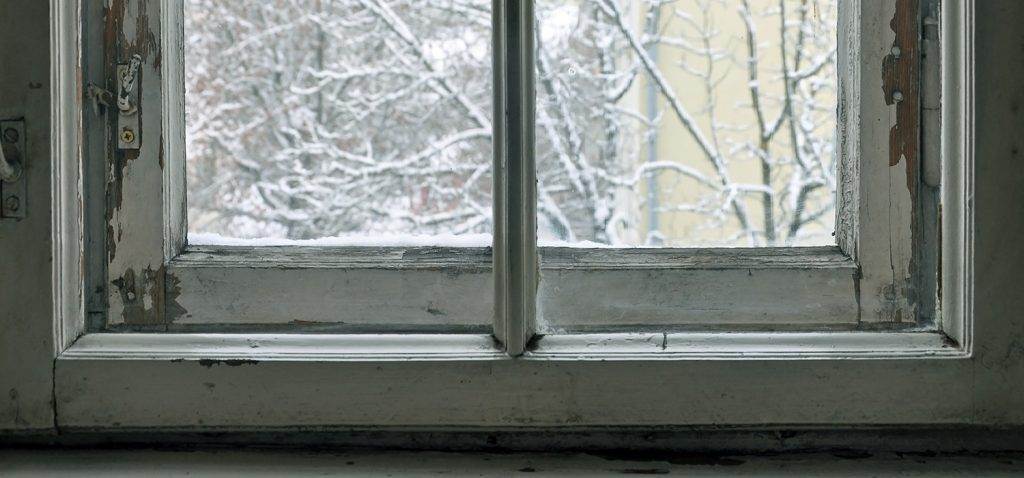
This image is property of www.ecohome.net.
Safety and Security
Upgraded Locking Mechanisms
The safety and security of your home are essential considerations when determining whether to replace your 20-year-old windows. Older windows, especially those with outdated locking mechanisms, may be more prone to break-ins and intrusions. By upgrading to newer windows, you can take advantage of improved locking mechanisms and other security features designed to deter potential burglars. These upgrades can provide you with greater peace of mind, knowing that your home is better protected against intruders.
Impact Resistance
Another advantage of newer windows is their increased impact resistance. Whether it’s from severe weather events or accidental impacts, windows that are resistant to damage can help protect your home and its occupants. Modern window designs incorporate features such as laminated or tempered glass that can withstand greater impacts without shattering. By replacing your 20-year-old windows with impact-resistant options, you can enhance the safety and durability of your home.
Protection from Intruders
Home security is a top priority for many homeowners, and windows play a crucial role in this aspect. Older windows may have weaker frames, making them easier to pry open. Additionally, single-pane glass is more susceptible to break-ins compared to double or triple-pane options. By replacing your 20-year-old windows with more secure and robust alternatives, you can significantly reduce the risk of unauthorized entry into your home. Enhanced security features such as laminated glass, reinforced frames, and advanced locking systems can provide you and your family with greater peace of mind.
Aesthetics and Home Value
Enhanced Curb Appeal
The appearance of your home is an essential consideration, and the condition of your windows plays a significant role in its overall aesthetics. After 20 years, your windows may appear weathered, faded, or outdated. By replacing them with newer, more attractive options, you can enhance the curb appeal of your home. New windows offer a fresh and updated look that can make a substantial difference in the overall appearance and attractiveness of your property.
Increased Property Value
Investing in new windows can also have a positive impact on the value of your home. Upgraded features, such as energy-efficient windows, are highly desirable to buyers and can increase the resale value of your property. When considering whether to replace your 20-year-old windows, it’s important to weigh the potential return on investment and the impact it can have on the overall value of your home. If you have plans to sell in the future, new windows can be a valuable selling point.
Customization Options
Modern window designs offer a wide range of customization options, allowing you to personalize the look and feel of your home. Whether you prefer traditional or contemporary styles, you can find windows that match your aesthetic preferences and complement your home’s architecture. From different frame materials and colors to various glass options and grid patterns, the possibilities for customization are virtually endless. This versatility allows you to create a cohesive and visually pleasing appearance that suits your personal taste.
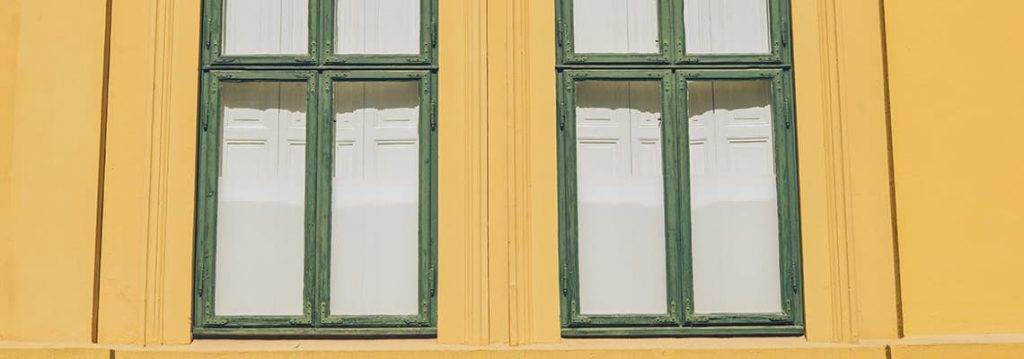
This image is property of stlwindowsanddoors.com.
Overall Return on Investment
Balancing Costs and Benefits
When contemplating whether to replace your 20-year-old windows, it’s crucial to evaluate the overall return on investment. The initial cost of window replacement may seem daunting, but it’s important to consider the potential energy savings, increased home value, and enhanced comfort that new windows can provide. By weighing these benefits against the upfront expense, you can determine whether the investment in window replacement is worth it for your specific circumstances.
Length of Expected Time in Home
Another consideration when determining whether to replace your 20-year-old windows is how long you plan to stay in your current home. If you envision living in your home for many years to come, the long-term benefits of window replacement, such as energy savings and improved comfort, may outweigh the upfront cost. However, if you plan to sell your home in the near future, you may want to consider factors such as market conditions, potential return on investment, and buyer preferences before deciding on window replacement.
Resale Value Impact
When selling a home, the condition and features of the property can significantly impact its market value. Potential buyers often place a premium on energy efficiency, security, and aesthetics when evaluating homes. By replacing your 20-year-old windows with newer, more desirable options, you can enhance your home’s resale value and attract potential buyers. Energy-efficient features and upgraded security measures can be significant selling points that differentiate your home from others on the market.
Environmental Considerations
Sustainability
As awareness of environmental issues continues to grow, homeowners are increasingly seeking sustainable and eco-friendly solutions. Window replacement provides an opportunity to reduce your carbon footprint and make your home more environmentally friendly. Newer windows are designed with energy-efficient materials and construction techniques that minimize environmental impact. By replacing your 20-year-old windows with sustainable alternatives, you can contribute to a greener future while enjoying the benefits of reduced energy consumption.
Reduced Carbon Footprint
One of the key benefits of energy-efficient windows is their ability to reduce your home’s carbon footprint. By minimizing heat transfer and reducing the need for excessive heating or cooling, these windows help to conserve energy and decrease greenhouse gas emissions. As a homeowner, opting for window replacement allows you to make a positive environmental impact and take steps towards a more sustainable lifestyle.
Recycling Options
When it comes time to replace your 20-year-old windows, it’s important to consider the recycling options available for the old windows. While some components of windows, such as glass and metal frames, can be recycled, others may require special handling. Consulting with window replacement experts or local recycling facilities can provide guidance on how to properly dispose of your old windows and ensure that they are recycled in an environmentally responsible manner.
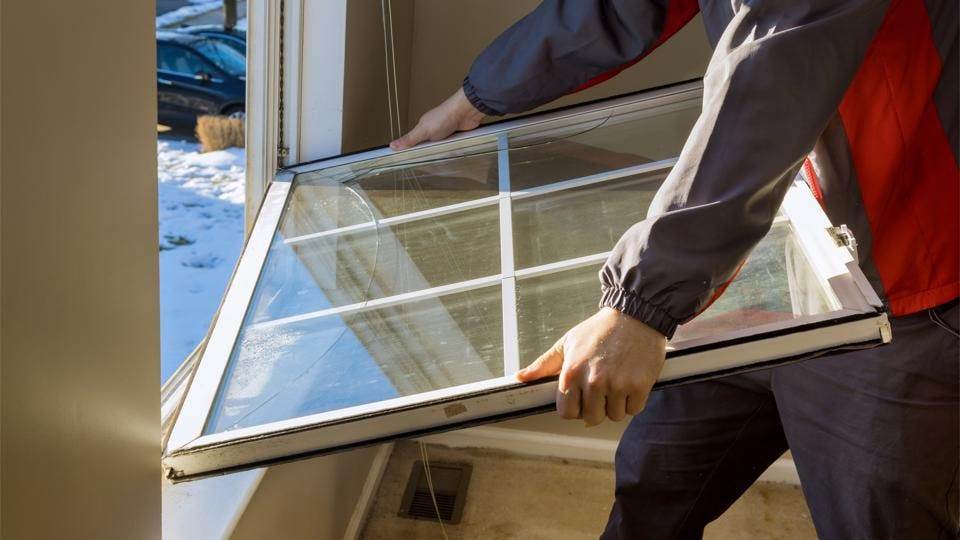
This image is property of thumbor.forbes.com.
Alternative Solutions
Upgrading Weatherstripping
If you’re not ready to replace your 20-year-old windows just yet, there are alternative solutions that can help improve their energy efficiency. One such solution is upgrading the weatherstripping. Weatherstripping helps to seal gaps and prevent air leaks around your windows, improving insulation and reducing energy loss. Installing new weatherstripping can be a cost-effective way to enhance the performance of your existing windows while postponing the need for full replacement.
Installing Storm Windows
Another option to consider is the installation of storm windows. Storm windows are designed to provide an additional layer of insulation and protection for your existing windows. They can help reduce drafts, improve energy efficiency, and provide an added level of security. While installing storm windows is not as comprehensive as full window replacement, it can be a viable option to improve the performance of your 20-year-old windows without the need for a complete overhaul.
Window Film Application
Window film application is another alternative solution to consider. Window films can help improve energy efficiency by reducing heat transfer, blocking harmful UV rays, and enhancing privacy. They can be applied directly to your existing windows, providing a cost-effective way to enhance the performance and appearance of your 20-year-old windows. However, it’s important to note that window film application may not provide the same level of insulation and other benefits as full window replacement.
Consultation with Professionals
Window Replacement Experts
When considering the replacement of your 20-year-old windows, it’s advisable to consult with window replacement experts. These professionals have the knowledge and experience to assess the condition of your existing windows, recommend suitable replacement options, and provide accurate estimates for the project. Consulting with window replacement experts can help ensure that you make an informed decision that aligns with your needs, budget, and aesthetic preferences.
Energy Audit Specialists
To better understand the energy efficiency of your home and the potential benefits of window replacement, consider consulting with energy audit specialists. These professionals can perform a comprehensive energy audit of your home, identify areas of improvement, and provide recommendations for energy-efficient upgrades. By understanding the specific energy-saving opportunities available, you can make more informed decisions about whether to replace your 20-year-old windows and what type of replacement windows to choose.
Financial Advisors
If you have concerns about the financial aspects of window replacement, seeking advice from a financial advisor can be beneficial. They can help evaluate the cost-benefit analysis of replacing your 20-year-old windows, guide you in understanding potential tax incentives, and provide insights into the financial implications associated with different window replacement options. Consulting with a financial advisor can help you make a well-informed decision that aligns with your budgetary goals and long-term financial plans.
In conclusion, the decision to replace your 20-year-old windows involves considering a range of factors, from cost considerations and energy savings to comfort, safety, and aesthetics. By evaluating the condition of your existing windows, consulting with professionals, and weighing the potential benefits against the upfront cost, you can make an informed decision that aligns with your home’s needs, your budget, and your long-term goals. Whether you opt for full window replacement or explore alternative solutions, investing in the improvement of your windows can enhance the overall quality, value, and sustainability of your home.
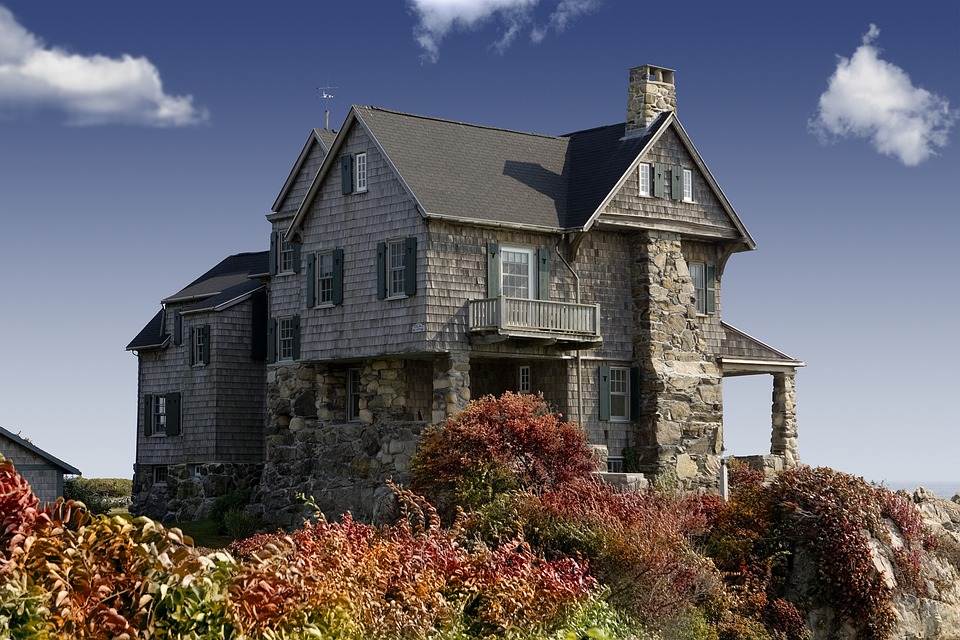
This image is property of comfortwindowsdoors.ca.
